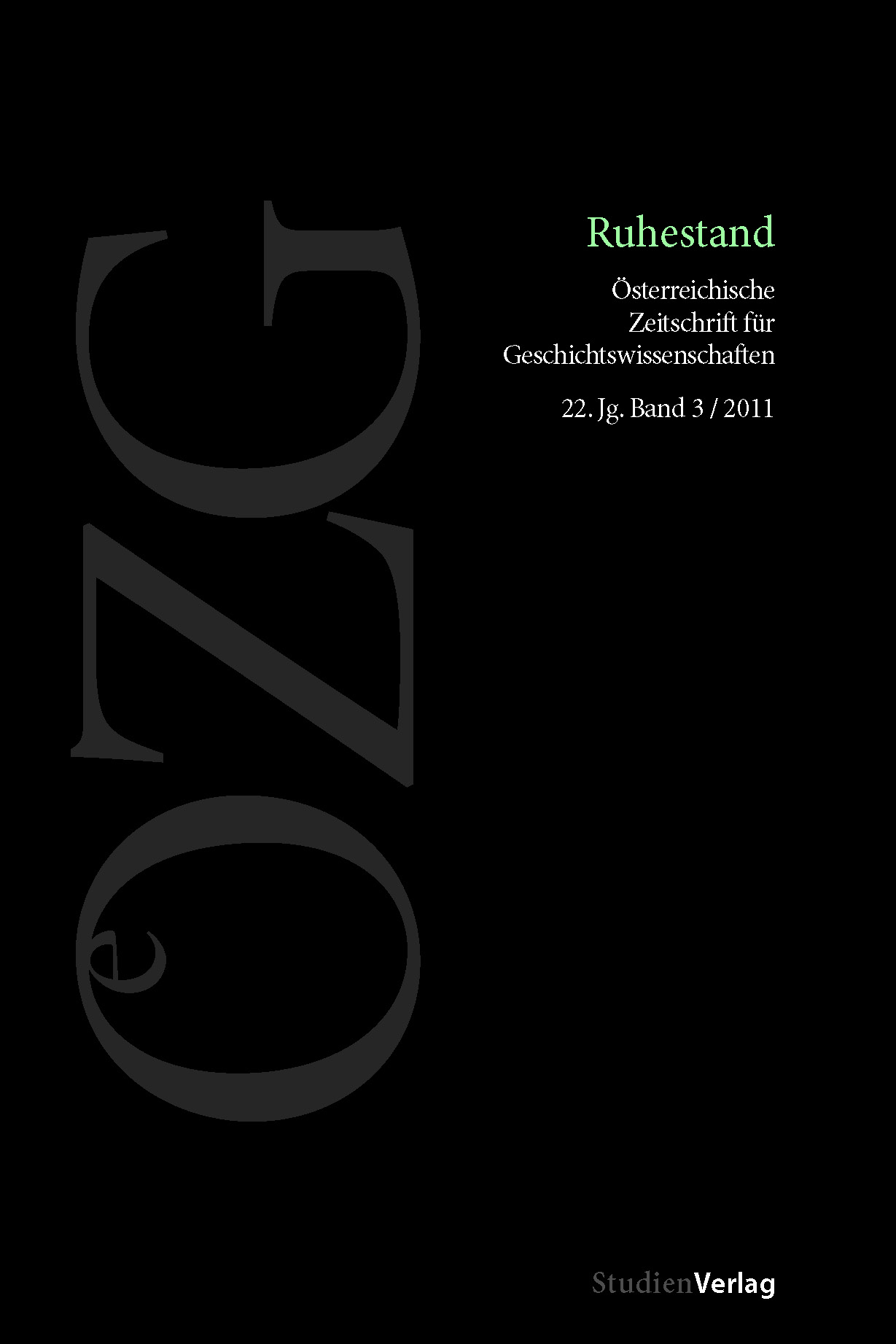Beamte im Un/Ruhestand
Überlegungen zu österreichischen Staatsbediensteten
DOI:
https://doi.org/10.25365/oezg-2011-22-3-5Schlagworte:
Civil servants, interwar period, retirement, political persecution, racial persecution, autobiographiesAbstract
In German speaking countries the notion of retirement (Ruhestand) was first used within the context of civil service – one of the first professional groups for whom the state provided a guaranteed old age pension. This paper addresses some questions and desiderata with a view to research on Austrian civil service in the interwar period. At a time when old age pensions for this group had already been established, political change and economic hardship posed a challenge to assumed normal careers. People decided to or were forced to retire considerably earlier than expected. This could bring about financial losses, sometimes the necessity to earn one’s livelihood in different ways and sometimes, in the case of the national-socialist purges starting in 1938, even ended in physical annihilation. A closer look is taken at the highest rank of Austrian civil servants (Sektionschefs) of said period. I argue that it will be crucial to draw upon a variety of sources – census data, personnel files, autobiographies as well as contemporary fiction – and not to shy away from using sociological tools such as status passage for further research on civil servants and retirement.


